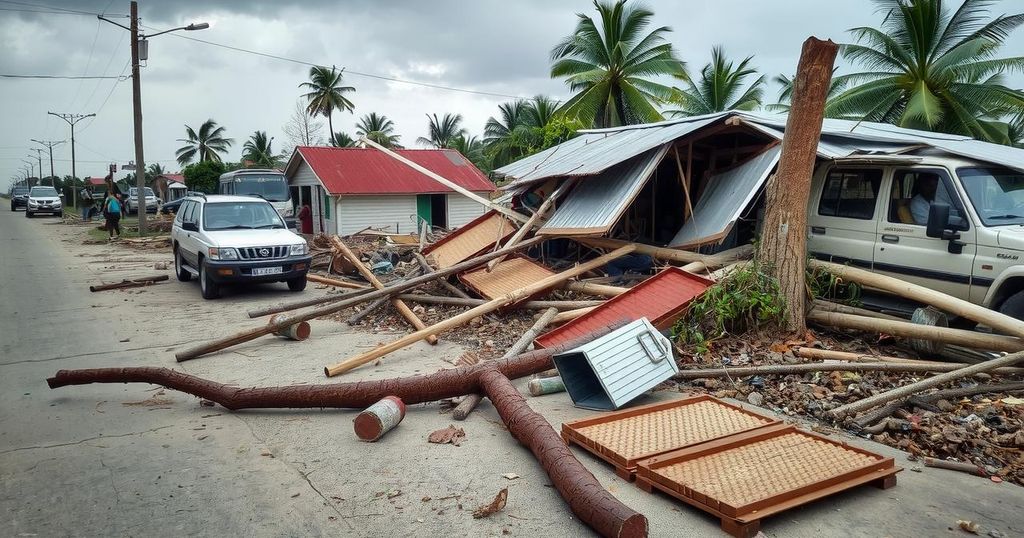Mozambique Revises Cyclone Chido Death Toll to 94 Amid Ongoing Cleanup Efforts
Mozambique’s death toll from Tropical Cyclone Chido has been revised to 94 as cleanup efforts continue. The cyclone, which also impacted Mayotte and Malawi, destroyed over 110,000 homes. Concerns regarding rising fatalities persist, particularly in Mayotte, where migrant populations may be undocumented. Cyclone Chido’s severity has been linked to human-induced climate change, highlighting ongoing challenges in disaster management.
Mozambique’s authorities have officially updated the death toll from Tropical Cyclone Chido to 94, a week after the catastrophic storm wreaked havoc across the region. The cyclone, which reached category four strength, left a significant path of devastation in the west Indian Ocean. The death toll was revised from an earlier figure of 76, underscoring the severity of the impact. Cyclone Chido obliterated approximately 110,000 homes in Mozambique, predominantly affecting the northern province of Cabo Delgado, where strong winds exceeding 160 miles per hour and torrential rains were reported. It is estimated that around 500,000 of the 620,000 Mozambicans impacted by the cyclone reside in Cabo Delgado.
The cyclone also struck the French island of Mayotte, prompting ongoing concerns regarding the potential rise in its death toll. Although the interior ministry reported 35 fatalities and nearly 2,500 injuries a week after the cyclone’s passage, the actual number may climb, especially due to the presence of undocumented migrants from the nearby Comoros Islands who reside in vulnerable areas that suffered severe damage. The Comoros has declared a national day of mourning despite not reporting any fatalities.
Following the devastation, French President Emmanuel Macron faced backlash for his comments during a visit to Mayotte. He remarked, “If this was not [part of] France, you would be 10,000 times deeper in the sh*t,” which has drawn criticism from political opposition. Subsequently, Cyclone Chido progressed into Malawi, where it resulted in the deaths of 13 individuals and injuries to nearly 30, according to local authorities. The cyclone’s intensity may have decreased, but the wide-ranging repercussions of this natural disaster continue to be felt across the region.
Tropical Cyclone Chido recently struck the west Indian Ocean, primarily affecting Mozambique and the French territory of Mayotte. The cyclone intensified to category four strength, causing significant destruction, particularly in the northern province of Cabo Delgado, Mozambique. The region faced severe wind speeds and heavy rainfall, leading to widespread casualties and damage. Experts indicate that climate change, driven by human activity, may have exacerbated the cyclone’s impact. The cyclone’s aftermath further complicates an already tumultuous political landscape in Mozambique, marked by post-election unrest and protests.
In conclusion, Tropical Cyclone Chido has resulted in considerable loss of life and destruction across Mozambique and surrounding areas. With the updated death toll now at 94, the cyclone’s impact on infrastructure and public health remains a pressing concern. The ongoing assessment of damages in Mayotte and Malawi suggests that the overall toll may continue to rise. As the affected regions struggle to recover, the tragic consequences of climate-related disasters underscore the urgent need for robust disaster management strategies and climate resilience initiatives.
Original Source: www.abc.net.au




Post Comment